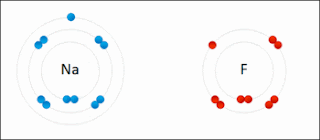" Where there is oxidation there is always reduction - Chimestry is essentially a study of redox systems. "
Chimestry deals with varieties of matter and change of one kind of matter into the other. Transformation of matter from one kind into another occurs through the various types of reactions. One important category of such reactions is Redox Reaction. A number of phenomena, both physical as well as biological, are concerned with redox reactions. These reactions find extensive use in pharmaceutical, biological, industrial, metallurgical and agricultural areas.
The importance of these reactions is apparent from the fact that burning of different types of fuels for obtaining from the fact that burning of different types of fuels for obtaining energy for domestic, transport and other commercial purposes, electrochemical processes for extraction of highly reactive metals and non-metals, manufacturing of chemical compounds like caustic soda, operation of dry and wet batteries and corrosion of metals fall within the purview of redox processes. Of late, environmental issues like Hydrogen Economy (use of liquid hydrogen as fuel ⛽) and development of ' Ozone Hole' have started figuring under redox phenomenon.
Classical Idea Of Redox Reaction-Oxidation And Reduction Reaction
Originally, the term oxidation was used to describe the addition of oxygen to an element or a compound. Because of the presence of dioxygen in the atmosphere (~20%), reason why they commonly occur on the earth in the from of their oxides.
The following reactions represent oxidation processes according to the limited definition of oxidation:
- 2Mg (s) + O2 (g) ⟶ 2 MgO (s) (1)
- S (s) + (g) ⟶ SO2 (g) (2)
- CH4 (g) + 2O२ (g) ⟶ 2s (s) + 2H2O (I) (3)
A careful examination of reactions (3) in which hydrogen has been replaced by oxygen prompted chemists to reinterpret oxidation in terms of removal of hydrogen from it and, therefore, the scope of term oxidation was broadened to include the removal of hydrogen from a substance.











